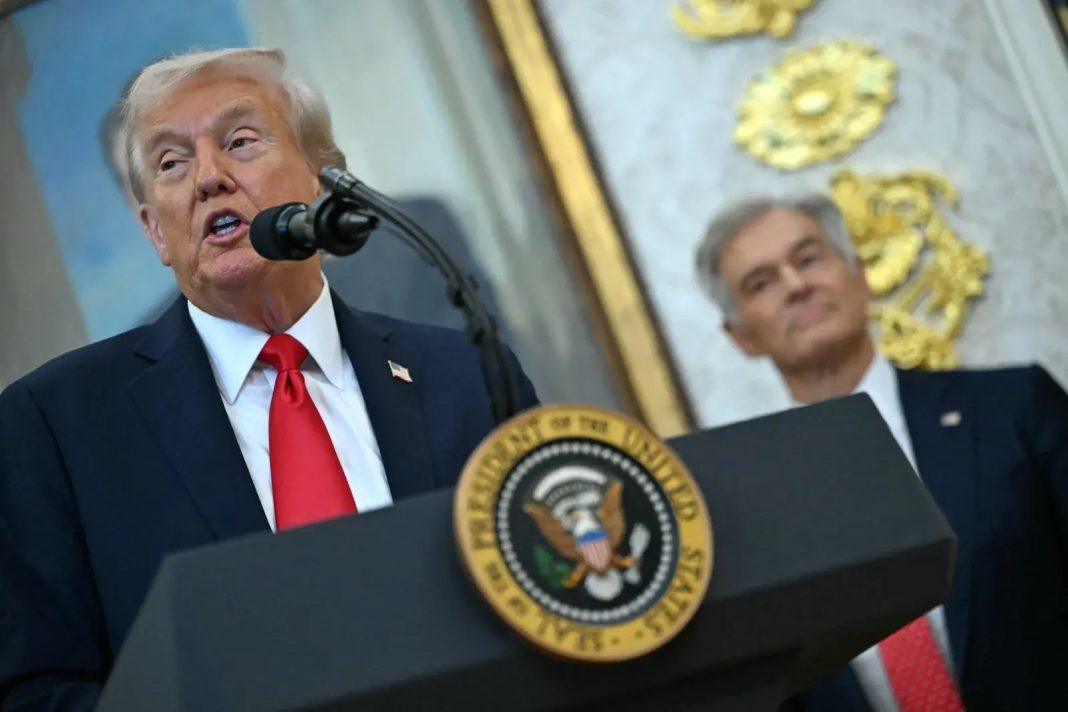WASHINGTON, USA — President Donald Trump has redesignated Nigeria as a “country of particular concern” (CPC), citing what he called an “existential threat” to Christians in Africa’s most populous nation.
In a post on Truth Social on Friday, October 31, 2025, Trump accused “radical Islamists” of carrying out widespread killings and warned that the United States would not ignore the situation.
“Christianity is facing an existential threat in Nigeria. Thousands of Christians are being killed,” he wrote.
“I am hereby making Nigeria a ‘COUNTRY OF PARTICULAR CONCERN’.”
Trump claimed that 3,100 Christians had been killed in Nigeria, compared to 4,476 globally, though he did not disclose the source of the figures.
“The United States cannot stand by while such atrocities are happening in Nigeria and numerous other countries,” he said.
“The United States cannot stand by while such atrocities are happening in Nigeria, and numerous other Countries. We stand ready, willing, and able to save our Great Christian population around the World!” – PRESIDENT DONALD J. TRUMP pic.twitter.com/jvWcJmUPJ7
— The White House (@WhiteHouse) October 31, 2025
The CPC designation, which can trigger sanctions and other punitive measures, is formally issued by the U.S. secretary of state under presidential authority.
Trump first placed Nigeria on the CPC list in 2020 during his first term, but the Biden administration removed the country the following year.
The announcement marks a renewed diplomatic flashpoint between Abuja and Washington.
It comes amid growing agitation among U.S. lawmakers who argue that Nigeria’s government has failed to protect Christian communities.
Senators Riley Moore and Ted Cruz have been leading calls for punitive action, with Cruz introducing a bill in September seeking “targeted sanctions against Nigerian officials who enforce Sharia and blasphemy laws.”
The push escalated weeks later when Trump signed a memo labelling anti-American, anti-capitalist, and anti-Christian sentiments as forms of domestic extremism.
Nigeria’s government, however, has repeatedly rejected claims of religious persecution.
President Bola Tinubu said last month that assertions of a Christian genocide were “unfounded,” insisting the nation “is built on the faith and resilience of its people” and that “no religion is under threat.”
Several international figures have also countered the genocide narrative.
Massad Boulos, Trump’s senior adviser on Arab and African affairs, said earlier this month that violence in Nigeria affects “people of all religions and all tribes.”
Vatican Secretary of State Pietro Parolin has similarly attributed violence in the country to complex social factors rather than religious conflict.
Under U.S. law, the CPC label requires Congress to consider non-economic measures first, before economic sanctions can be imposed if severe violations of religious freedom persist.
Nigeria had yet to formally respond to the announcement, though the designation is expected to provoke diplomatic engagement, given the strategic ties between the two nations.
The issue remains contentious within diplomatic and security circles, touching on Nigeria’s internal security challenges, Washington’s foreign-policy priorities, and the broader debate over how the U.S. categorises religious persecution globally.







